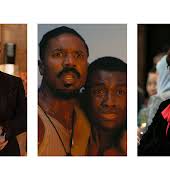How to spot a scammer (according to someone who was actually scammed)
By Sarah Finnan
19th Apr 2024
19th Apr 2024
Ever wonder what the telltale signs you're being scammed are? Johnathan Walton learned what they were the hard way.
There’s been a huge uptake in interest in scams and their environs in recent years. Scammers, con artists, fake heiresses; it’s all very of the moment. Johnathan Walton, for one, is delighted.
“I’m glad,” he tells me over the phone from his LA abode. “I think [scams have] always been this rampant, but the problem is, most victims don’t come forward – they don’t go to the police, they sometimes don’t even tell their spouses or friends what’s happened because they’re so ashamed and embarrassed. It’s kind of like the sex scandal in the Catholic church you know? It’s been happening for so long, but no one’s been talking about it. Now, finally, everyone’s talking about it, and I’m thrilled.”
Himself the victim of a very elaborate (and expensive!) scam, Jonhathan found himself out of tens of thousands of dollars after a woman he considered a close friend took advantage of his kindness. He found purpose in heartbreak though and both his blog and subsequent podcast series, Queen of the Con, have been helping others recognise the telltale signs that they too are being scammed.
Initially intent on ensuring that just his own scammer, Marianne ‘Mair’ Smyth, was brought to justice (“By the time I’m done with her, the world will know her face and she’ll never be able to scam anyone again,” he assures me), that goal has since expanded and his objectives are much greater now; teach people what to look out for so they can prevent the same thing from happening to them.
Scams may be the latest public obsession, but they’re far from a new phenomenon and the first recorded con dates all the way back to ancient Greece, where a couple of sailors tried to sink a boat to collect what was tantamount to insurance. “Con artistry is the oldest profession in the book,” Johnathan agrees.
“It’s only now that it’s getting a tonne of press, but publicity is like kryptonite to con artists. It’s hard for someone to continue scamming another person once they’ve made it into mainstream media. After that, a con artist has to leave and find a new mark, a new town, a new location.”
Here Johnathan shares some of the most common techniques that scammers use.
Becoming fast friends
“You know what? All con artists are using the same playbook. All the things Mair did to me, other scammers do to their victims too. Becoming fast friends is one technique they use. If there’s someone new in your life, trying to befriend you really quickly – they’re buying you new stuff and wining and dining you – they could be a con artist.
“A con artist has to get in your life quickly,” Johnathan explains. They have to establish a friendship with you because you’re more likely to do something for a friend than a random acquaintance you met once. “You would do things for a loved one that you wouldn’t do for a stranger. So, a con artist’s first job is to not be a stranger.”
Drama, and lots of it
Another common scammer trademark is for them to always be surrounded by constant drama. “Drama, drama, drama. That’s a con artist technique.”
“If someone new in your life is attracting lots of drama – they could be a con artist. Sure, bad things happen to people, but 20 bad things happening to the same person in one month? That was Mair, she had a lot of drama.”
Granted, Mair’s backstory was extremely farfetched and fantastical, but there were also undercurrents of normal familial relationships that Johnathan could relate to. He confided in Mair that his family disowned him for being gay; she understood, her family disowned her too. Her family (old Irish royalty, according to her), had been torn apart by money and greed… again, a story that most people could empathise with in some shape or form.
Mair’s problems were always followed by a certain level of theatrics but it was hard not to stay invested because her hardships made her seem human.
Wetting your beak
A phrase often associated with the mafia, “wetting your beak” is a method regularly employed by scammers to try to establish a level of trust between themselves and the person they’re deceiving. In Johnathan’s case, this meant that Mair paid him back the $4,200 he first lent her within a matter of hours.
“I’ve been investigating con artists for the past seven years now, and I can tell you, that that is a huge red flag. Once she pays me back, I now have confidence in loaning her more money – she’s trustworthy. In my mind, she’s a woman of her word, so I feel comfortable loaning her more money down the line.”
“You see a little of your money back up front, and you think ‘Great, no problem’. Hundreds and hundreds of victims of other con artists have contacted me for help since reading my blog or listening to my podcast because they’re inspired by my story. They want justice in their cases and I’ve been helping them – it’s what I do in my free time, I give advice, right? – but I know what to look out for now.
“There are tips and tricks I have learned in my case along the way that I’m happy to pass on to other people because it makes me feel like that’s why this happened to me. I was meant to do this. I was meant to stop Mair, and I do believe in my core that I was meant to stop a lot of other con artists too.
“The parallels between Mair and other scammers – there are techniques that every con artist uses, she did not reinvent the wheel.”
What does Johnathan think the obsession with scams is? “Hearing about the lengths that people will go to for money is interesting. Like for someone to pretend to have cancer? Or lupus? Or to be friends with Jennifer Anniston? It’s human nature to be interested in that kind of stuff.”
This article was originally published in October 2022.























